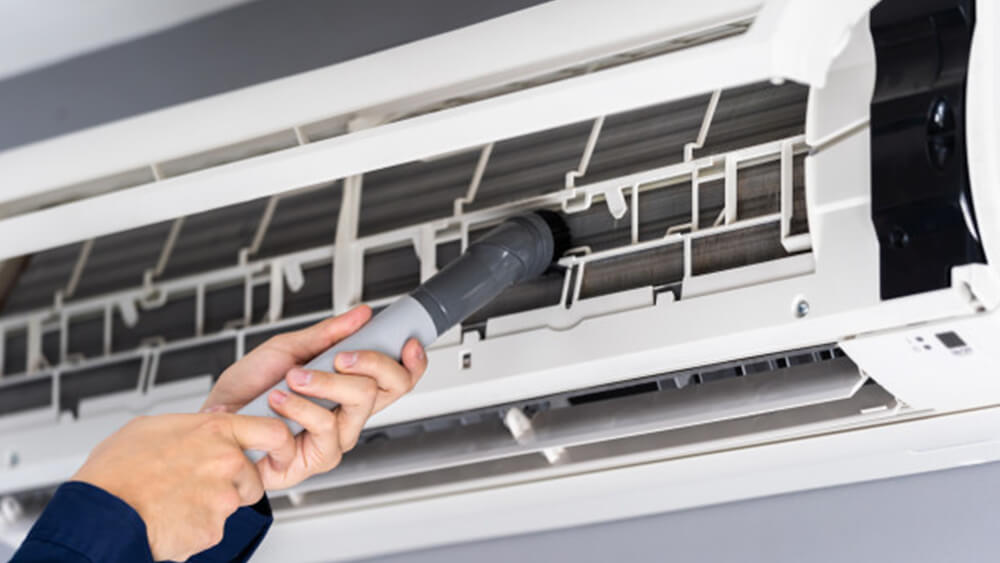
Key Takeaways
- Unusual noises, odors, or leakage from AC indicate lack of maintenance.
- A sudden hike in bills means your AC is overworking due to cloggens filters or dirty coils.
- AC tune-ups not only improve comfort but also extends your system’s life.
Do you remember the last time your air conditioner was serviced? In case not, your AC might let you know.
These tune-ups are essential to run your air conditioning system smoothly. When your unit starts acting up, it might be because you delayed your routine maintenance checks!
Several warning signs indicate your AC may need attention. This blog highlights the most common issues and offers guidance on how to address them.
Immediately schedule an AC maintenance check upon detection, or you can even do it yourself!
- What Is an HVAC Tune-Up?
- Why Is an HVAC Tune-Up Important?
- 7 Key Indicators Your HVAC System Requires Maintenance
- What Does an AC Tune-Up Include?
- How Much Does an AC Tune-Up Cost?
- How Often Should You Get an AC Tune-Up?
- How to Pull Off a DIY AC Tune-Up?
- When to Call a Professional for an AC Tune-Up?
- Addressing HVAC Tune-Up Signs
What Is an HVAC Tune-Up?
An HVAC tune-up is a routine maintenance service for your HVAC system. It typically includes a thorough inspection, cleaning, and servicing of key HVAC components like filters, coils, and electrical connections. The goal is to ensure that your HVAC system is running efficiently and effectively, preventing potential issues before they lead to costly HVAC repairs.
Why Is an HVAC Tune-Up Important?
- Prevents Breakdowns: Regular tune-ups help identify and fix minor issues before they turn into major, costly repairs.
- Improves Energy Efficiency: A well-maintained HVAC system runs more efficiently, reducing energy consumption and lowering utility bills.
- Extends System Lifespan: Routine maintenance can prolong the life of your HVAC system, delaying the need for a costly replacement.
- Enhances Indoor Comfort: Tune-ups ensure your system is working optimally, providing consistent heating and cooling throughout your home.
- Improves Air Quality: Regularly cleaning and servicing your HVAC system helps remove dust, allergens, and other contaminants, improving indoor air quality.
- Ensures Safe Operation: Regular inspections can detect and address potential safety hazards, such as gas leaks or faulty wiring.
7 Key Indicators Your HVAC System Requires Maintenance
Here are the most important signs you should keep an eye out for:
1. Strange Sounds Coming From the AC
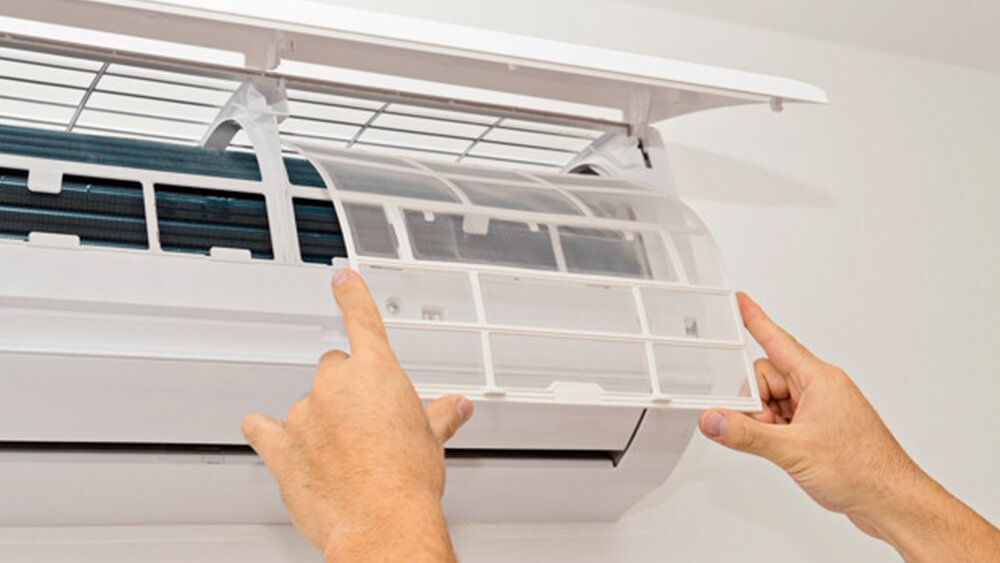
If your AC is old, you must have gotten used to its noises when turned on. If you notice any strange noises coming from your AC, then this indicates it’s time for your AC’s tune-up. Some common sounds that should raise a red flag include a hissing sound, a whistle, a clanking sound, a buzz, or an alarming bang.
Normally, a buzzing sound can be produced if the airflow is partially obstructed as the air conditioning unit tries to push the air past the blockage, creating discerning sounds. A humming or raspy sound is also generated if the blades are damaged and not moving swiftly.
A hissing sound might indicate faulty ductwork. A clanking sound might be as simple as a loose bolt or screw. Finally, a motor that is dying out makes a humming noise.
Be mindful of these auditory signals your AC system may be sending you. Get your AC inspected as soon as possible to determine the exact cause and keep it healthy and running.
2. A Sharp Increase in Your Utility Bills

If you observe a steep hike in your utility bills without any significant increase in usage activity, it could indicate that your air conditioner is drawing more energy than usual. This typically happens due to a lack of maintenance.
If you don’t schedule regular AC tune-ups, your air conditioning system will lose efficiency as it gets old. Over time, the system may need to work harder due to dust traps, blockages, or other reasons.
Air conditioner tune-ups not only increase your system’s efficiency but also help save energy and extend the life of your air conditioning system.
Smart thermostats for mini-splits are an excellent way to check your AC’s maintenance regularly. They are proficient at tracking and analyzing your AC usage patterns so that you can make data-driven decisions to reduce wastage. Also, their smart features help save up to 25% on energy overall!
Your best choice to make any mini-split, window,
or portable AC smart. Enhance your comfort and savings.

3. AC Not Cooling Properly

If your AC blows out at room temperature or warm air, it will not fulfill its primary purpose. There are several reasons why this can occur, and all can be catered to in an air conditioner tune-up.
Your air conditioner coils may need to be cleaned, or the air filters may need to be replaced to prevent dust and grime from being the main reason for your AC’s inefficiency. Your AC can also be low on refrigerant, and recharge may fix the issue. The problem can also be electrical. The outdoor unit is receiving electricity due to a trip or fuse.
The first two issues can be sorted at home; as for the electrical issues, it is always advised to seek help from a professional.
Related: Air Conditioner Troubleshooting: 11 Reasons Why Your AC Is Not Working & How to Fix Them
4. AC is Giving Off a Bad Odor

If you suspect a bad odor and feel it is being emitted from your air conditioning system, you should tackle it before it worsens. The smell can be due to many factors, such as wet filters, a clog in the condensate drain line, or a buildup of fungus or mold in the air ducts.
Sometimes, foul odor from the vent of your air conditioning system also means that your system’s wire insulation needs to be replaced. Trapped and decaying animals in your unit can also give off a pungent smell.
Learn more in detail about some of the reasons for and possible solutions to AC smells.
An air conditioner tune-up ensures that your unit is clean and well-maintained to avoid any foul odor being released! Don’t take any chances, as this can directly impact your health.
5. The Air Conditioner Has a Weak Air Flow
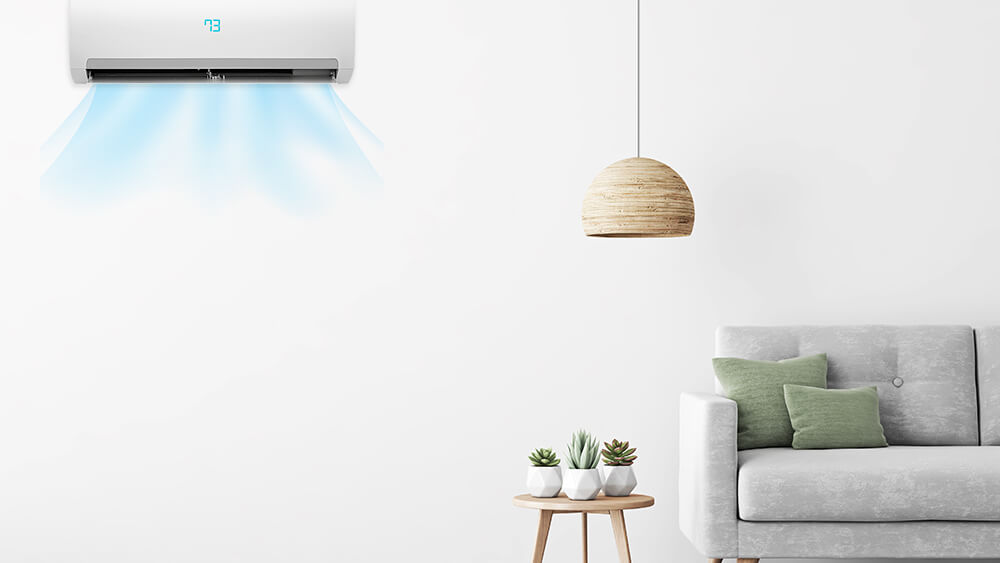
No matter the season, you depend on your air conditioning system to provide consistent airflow to maintain the desired temperature. When this does not happen, you suffer from hot and cold spots throughout your home and increased bills as your AC works harder than usual.
Poor airflow is an indication of clogged filters, a leaky duct, or maybe both! Clogged ducts or dirty air filters prevent easy airflow through the system. If clogs are not taken care of, this can lead to unnecessary, expensive repairs.
Moreover, it can be detrimental to indoor air quality and cause allergies and other respiratory problems, proving a health risk for you and your family.
If you feel that the airflow coming out of your unit is weak, it’s time to schedule your AC’s tune-up. Tuning is a great way to clear debris from your vents or any other blockades and restore the airflow to get your air conditioning system back on track.
6. AC is Unable to Control Room Humidity Levels

During spring and summer, the weather can get extremely sticky! However, this does not mean you must also experience humidity indoors. Usually, your air conditioner takes care of your room’s humidity automatically.
An ideal way to manage humidity levels is by using the Comfy Mode feature on smart thermostats for mini-splits. These devices not only maintain your preferred settings but also use humidity triggers to keep moisture levels in check.
However, if you feel that your air conditioner is not performing perfectly and the ideal room’s humidity levels are not being achieved, your AC’s tune-up is well overdue!
In such cases, the refrigerant of your AC system is low and requires maintenance. The evaporator coil may not get cold enough to cool the air and effectively remove the room’s humidity.
If there is any other issue with your HVAC system, a tune-up shall get your coils working perfectly.
7. Water is Leaking From Your AC
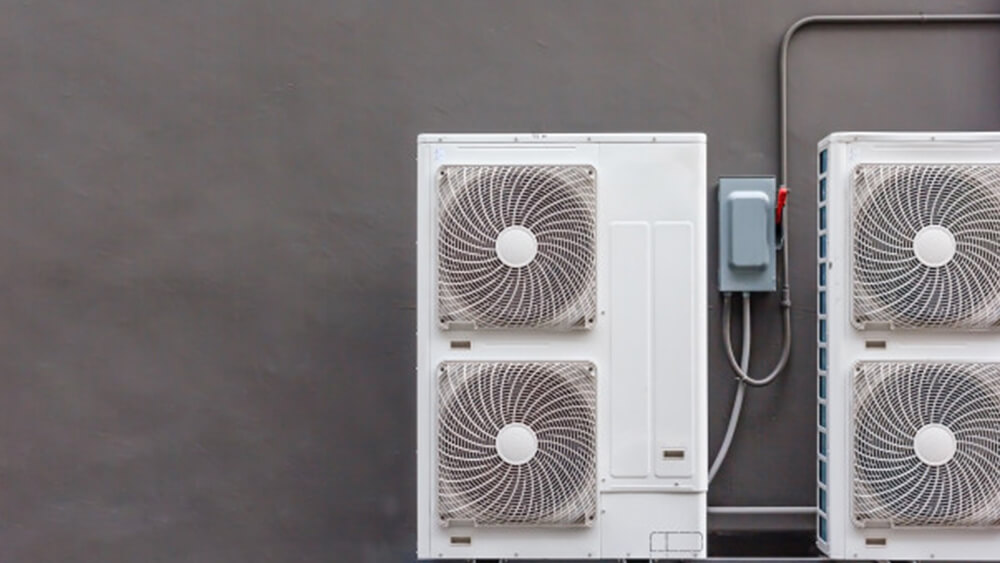
Air conditioner water leakages are usually due to a clogged drain pipe or a leak in the refrigerant. Refrigerants generate cool air and may cause condensation as they work; however, the liquids should not accumulate or leak into your home. If you notice leaks around your air conditioning unit, it means that your refrigerant is not performing exactly as it should.
Timely air conditioner tune-ups, such as right before the start of the season, can prevent a leak in time! However, leaks need to be taken seriously as they can cause serious harm to your AC and your home.
What Does an AC Tune-Up Include?
What exactly does an AC checkup include? Read on to find out!
-
Condenser Inspection
A professional tune-up starts with the condenser inspection and coil cleaning. The cover is removed, and any debris accumulated in the coils and fan is thoroughly cleaned. When the coils are dirty, the transfer of heat is diminished, and your AC won’t be able to cool adequately.
-
Checking Refrigerant Levels
If your unit is low on refrigerant, it might indicate a refrigerant leak, so refrigerant levels are always checked. The source of the leak is figured out and repaired before adding the refrigerant.
-
Inspection of Electrical Components
An air conditioner tune-up also entails checking for electrical components. Capacitors and contactors are checked for wear and tear. If your capacitor dies from overheating or power fluctuations, it can stop your AC from turning on.
-
Cleaning & Changing Air Filters
You should clean your filters every 2 weeks and replace them after 3-4 months. Most homeowners can change or clean the filters themselves but letting a professional do it once a year is always a good idea.
-
Adjusting Fan Balance
A technician will check the fan balance, as improper balance hinders heat dissipation.
-
Drain Pan Cleaning
When the moisture from your home is removed, it is collected in the drain pan. It can become clogged if not regularly emptied. The comprehensive tune-ups include cleaning the pan and clearing the drain line.
-
Lubrication
Over time, the oil in your AC motors may seep out, which increases wear and tear. Professional tune-ups include thoroughly lubricating all moving parts, including fans and motors.
How Much Does an AC Tune-Up Cost?
A simple AC tune-up costs $75 to $200 in the US. The service includes checking the major parts of your air conditioner, especially the condenser, to see how well they are functioning and if any part requires repair. Standard tune-ups don’t include evaporator coil or duct cleaning.
Considering this, repair costs can be categorized as minor or emergency repairs. The chart below breaks down the associated costs for each.
Cost of Minor Repairs
The cost of reactive maintenance varies, ranging from $100 to $1,600, depending on the specific component that requires attention.
|
Fan Motor Repair |
$100-$700 |
|
Circuit Board Repair |
$200–$600 |
|
Refrigerant Recharge |
$200-$500 |
|
Duct Cleaning |
$250-$1,000 |
|
Thermostat Replacement |
$50-$500 |
|
AC Leak Repair |
$200–$1,600 |
|
Ignitor Repair |
$150–$250 |
|
Heat Exchanger Repair |
$100–$200 |
Cost of Emergency Repairs
Below are some of the most common emergency repairs:
|
Compressor Replacement |
$800-$3,000 |
|
Refrigerant Leakage |
$250-$1,500 |
|
Air Handler Replacement |
$1,500-$3,400 |
|
Repairing HVAC Ductwork |
$500-$2,000 |
|
Coil Replacement |
$600-$2,400 |
|
Fan Motor Replacement |
$100-$700 |
|
Heat Exchanger Replacement |
$800-$5,000 |
|
Capacitor Replacement |
$100-$250 |
How Often Should You Get an AC Tune-Up?
Your system accumulates dust in areas that affect its efficiency, like coils and filters, making it lose 5% of its efficiency. If your system exhibits any of the abovementioned signs, you should immediately schedule your air conditioner for a checkup.
Inspecting and tuning at least once a year is generally recommended. However, the summers require excessive usage, so it is best to go for tune-ups in the spring season.
How to Pull Off a DIY AC Tune-Up?
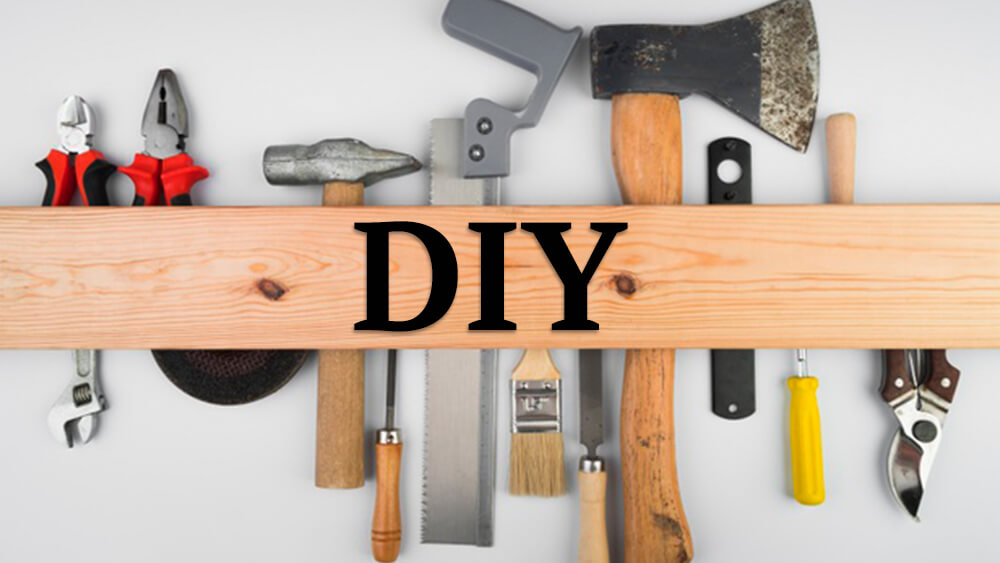
With all these signs, what HVAC preventive measures can you take without asking a professional for help? Some of the steps are listed below.
While a thorough and detailed AC checkup by a professional is recommended in case of a serious problem or thorough clean-up at least once a year, you can perform minor, regular AC tune-ups on your own! This can save costs and keep your AC’s maintenance on point.
Here are some of the essential steps:
1. Change AC’s Air Filters on Your Own
This is one of the simplest things you can do to ensure your AC runs efficiently. You can change your AC filters every three months! During heavy use, such as when summers are at their peak, they can also be replaced monthly. Air filters can quickly become clogged with dirt, and if not changed, they can cause your unit to work harder than required.
Tip: Use a smart climate control device, such as Cielo Breez Max, to keep track of your AC air filter status.
To change the filter:
- Loosen the screws of the front grill leading to your AC’s vent. Remove the cover and set it aside securely.
- Reach out for the air filter and set it aside. You will recognize it from the dirt and brownish color.
- Insert the new filter as indicated by the arrows. For example, the arrows should be pointing toward the air conditioner.
- Make sure the filter is inserted correctly and isn’t loose. Replace the cover.
You can also dust the vents in the process! Changing the air filter saves energy and prolongs the life of your air conditioning system.
2. Unclog Your AC’s Drain Pipe
The condensate drain tube removes excess condensation. If it’s clogged, you will notice water puddling around your AC unit. Mold and algae buildup is the primary cause of clogs; if they are not huge, you can quickly fix them on your own.
To unclog your AC drain pipe:
Pan tablets can be used to avoid clogged tubes in the future. These pan tablets are available at home centers or plumbing supply stores.
3. Clean the AC’s Coil
The coil of the air conditioning system is essential since it is the heart of the cooling system. This is where the refrigerator absorbs the heat to make the air cooler. Unfortunately, dirt and debris accumulate easily on your system’s coil, and the dirtier the coil is, the less efficient your AC’s cooling capacity will be. Hence, coil cleaning is an essential part of the AC tune-up process.
To clean your AC’s coil:
- Firstly, make sure the power to your air conditioner is cut off. Next, access your AC’s outdoor unit and unscrew the removable cover.
- Clean visible dirt using your hand and use a coil brush for in-depth and detailed dusting.
- Run a fin comb along with the fins on your coil. This will straighten out any bent fins to improve the coil’s surface area, thus improving its efficiency.
- Finally, wash the coil again by spraying water over it. Next, use a foaming coil cleaner solution to thoroughly remove any unreachable grime. Unless your cleaner is rinse-free, you will need to rewash the coil with water.
You can clean the coil of your outdoor unit with a foaming coil cleaner. Just spray the cleaner on the coil and wash it clean. This procedure not only cleans it but also improves the performance of your AC.
4. Remove Plants and Shrubs & Clean Your Outside AC Unit
Your air conditioning system’s outdoor unit needs airflow to run efficiently. If you have plants or shrubs growing around it, keeping them away from the system is crucial for adequate airflow.
If you have a lot of trees outside to hide your outdoor AC uint, the leaves can build up at the bottom of the compressor, disrupting your system. You need to ensure you are making use of the plants the right way.
When to Call a Professional for an AC Tune-Up?
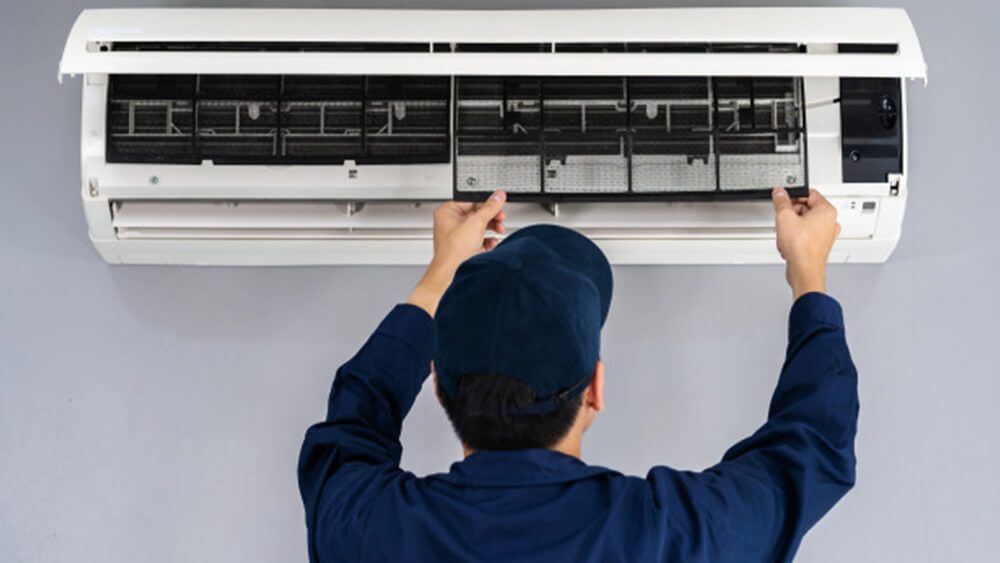
If your air conditioner is having a serious problem and you are not very confident about performing a DIY, it’s best to trust a professional! Professionals can be pricey for an air conditioner tune-up, but a breakdown can be more expensive and, if not done timely, can lead to complete HVAC replacement.
Expert AC tune-ups encompass a thorough examination of multiple components that may be intricate to assess on your own—for instance, measuring operating pressures, inspecting electrical wiring, capacitors, fan blades, compression, fittings, recharging, and more.
Addressing HVAC Tune-Up Signs
Regular AC tune-ups keep your system running for an extended period. These tips and tricks will prolong your system’s life and help you save energy. While air conditioner tune-ups and maintenance checks can be done on your own, make sure to get your system checked by an expert once in a while to avoid technical complications.


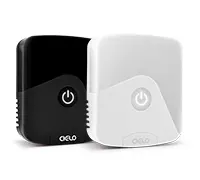


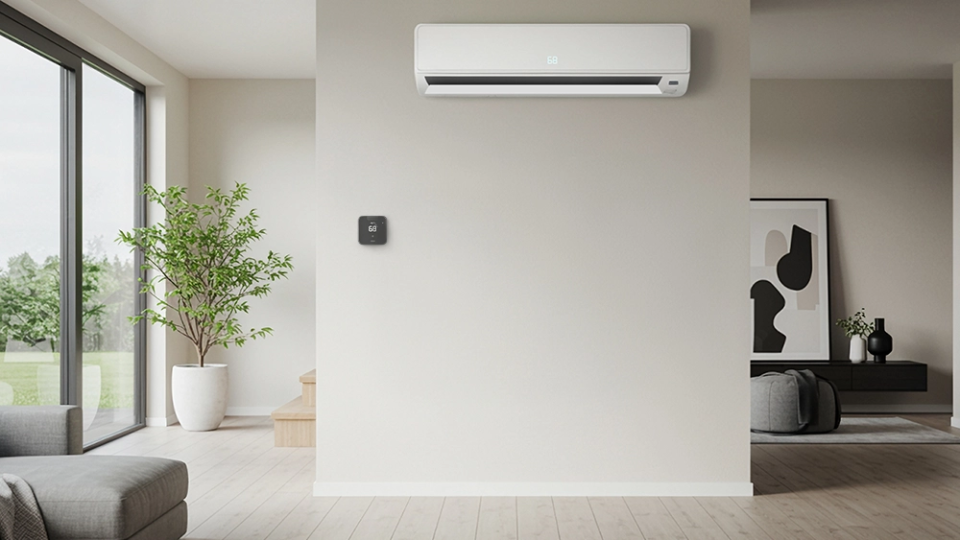

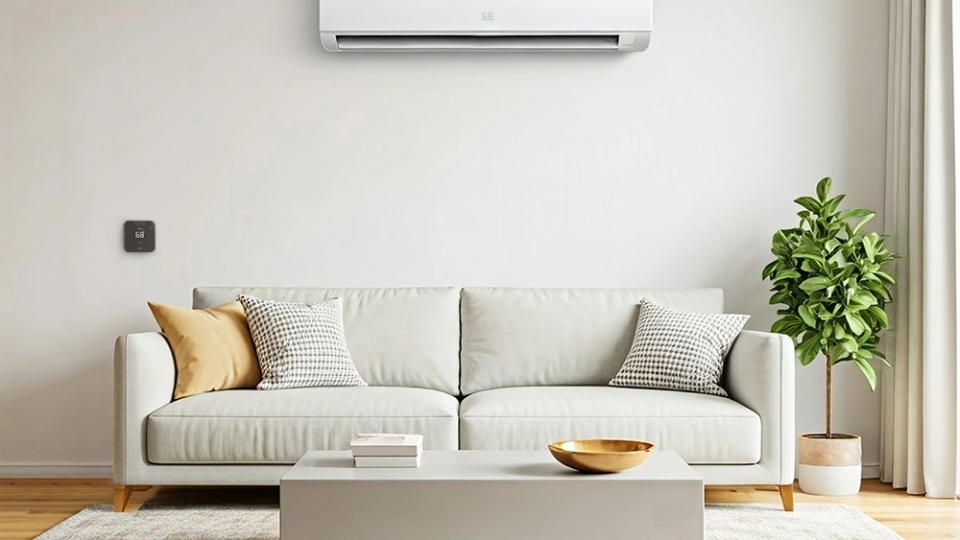

4 Comments. Leave new
I usually tune-up my AC every six months.
It really helped when you talked about cooling units and how to know if you need a new one! Recently, my sister said something’s wrong with her air conditioner and thinks it’s time to buy a new one! I believe my sister could benefit from reading your AC’s maintenance tips, so I’ll be sure to share them! Thanks for the advice on how my sister could take good care of her new AC system!
Hey, nice blog. It has a lot of useful and helpful information. Just figured I’d let you know that the content on points #1 and #2 is the same, rather than explaining the point regarding utility bills. Thank you for the thorough content!
Thanks for letting us know. We have fixed the issue.